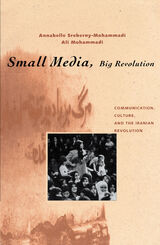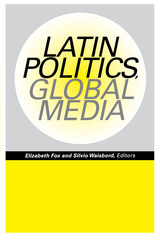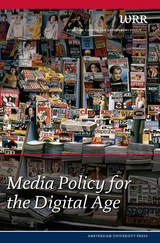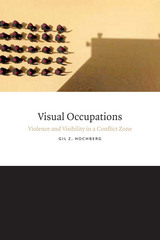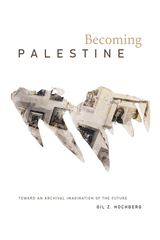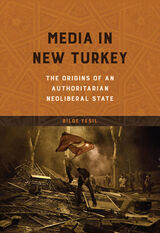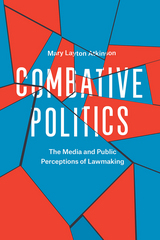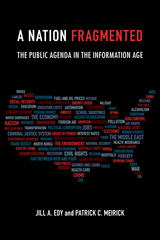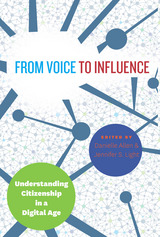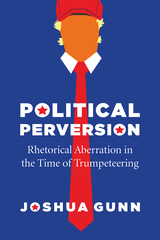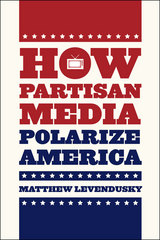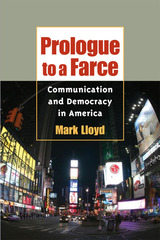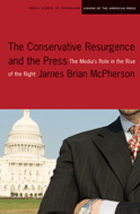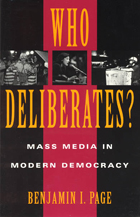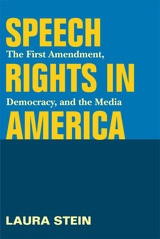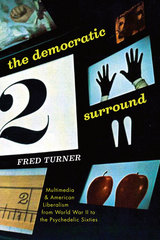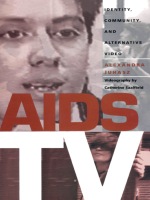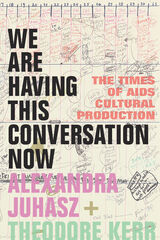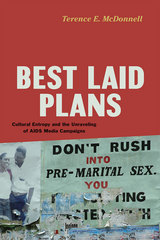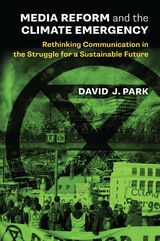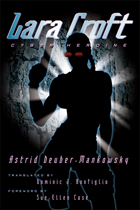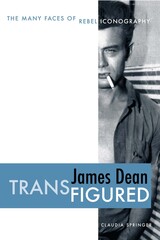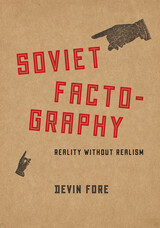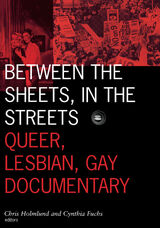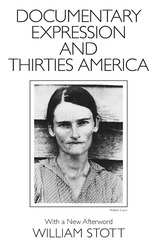Who Deliberates?: Mass Media in Modern Democracy
University of Chicago Press, 1996
Cloth: 978-0-226-64472-1 | Paper: 978-0-226-64473-8
Library of Congress Classification P95.82.U6P34 1996
Dewey Decimal Classification 302.230973
Cloth: 978-0-226-64472-1 | Paper: 978-0-226-64473-8
Library of Congress Classification P95.82.U6P34 1996
Dewey Decimal Classification 302.230973
ABOUT THIS BOOK | TOC
ABOUT THIS BOOK
Public deliberation is essential to democracy, but the public can be fooled as well as enlightened. In three case studies of media coverage in the 1990s, Benjamin Page explores the role of the press in structuring political discussion.
Page shows how the New York Times presented a restricted set of opinions on whether to go to war with Iraq, shutting out discussion of compromises favored by many Americans. He then examines the media's negative reaction to the Bush administration's claim that riots in Los Angeles were caused by welfare programs. Finally, he shows how talk shows overcame the elite media's indifference to widespread concern about Zoe Baird's hiring of illegal aliens. Page's provocative conclusion identifies the conditions under which media outlets become political actors and actively shape and limit the ideas and information available to the public.
Arguing persuasively that a diversity of viewpoints is essential to true public deliberation, this book will interest students of American politics, communications, and media studies.
Page shows how the New York Times presented a restricted set of opinions on whether to go to war with Iraq, shutting out discussion of compromises favored by many Americans. He then examines the media's negative reaction to the Bush administration's claim that riots in Los Angeles were caused by welfare programs. Finally, he shows how talk shows overcame the elite media's indifference to widespread concern about Zoe Baird's hiring of illegal aliens. Page's provocative conclusion identifies the conditions under which media outlets become political actors and actively shape and limit the ideas and information available to the public.
Arguing persuasively that a diversity of viewpoints is essential to true public deliberation, this book will interest students of American politics, communications, and media studies.
See other books on: 1993-2001 | Communication in politics | Modern Democracy | Objectivity | Page, Benjamin I.
See other titles from University of Chicago Press

